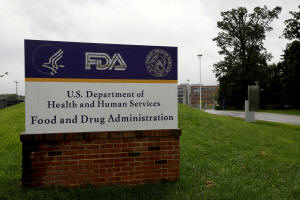U.S. FDA lifts hold on Bluebird's sickle cell disease therapy
 Send a link to a friend
Send a link to a friend
 [December 20, 2022]
(Reuters) - Bluebird Bio Inc said on Monday that the U.S. health
regulator had lifted a partial clinical hold on studies for its gene
therapy to treat blood disorder sickle cell disease. [December 20, 2022]
(Reuters) - Bluebird Bio Inc said on Monday that the U.S. health
regulator had lifted a partial clinical hold on studies for its gene
therapy to treat blood disorder sickle cell disease.
The U.S. Food and Drug Administration's decision ends a year-long halt
on future studies and a pause in enrollment for ongoing studies of
lovo-cel after one case of persistent anemia in a patient.
The move also signals a more favorable regulatory environment for cell
and gene therapies after a spate of clinical holds by the regulator in
the last few years, said SVB Securities analyst Mani Foroohar.
Bluebird said its investigation showed that patients with persistent
anemia had a genetic trait called the alpha-thalassemia trait. Such
patients would be excluded from future studies of the drug.
Sickle cell disease leads to a shortage of healthy blood cells due to
the sickle-shape instead of the round shape of red blood cells, and can
cause complications such as infection, acute chest syndrome and stroke.

[to top of second column]
|

Signage is seen outside of the Food and
Drug Administration (FDA) headquarters in White Oak, Maryland, U.S.,
August 29, 2020. REUTERS/Andrew Kelly
 Bluebird is developing the drug as a
potential one-time treatment for the disorder, which affects an
estimated 100,000 people in the United States.
The therapy works by adding a gene to a patient's blood stem cells
that can help the body produce anti-sickling hemoglobin.
The company, which flagged going concern doubts earlier this year,
is working to resume enrollment and treatment of patients aged
between 2 and 17.
(Reporting by Aditya Samal in Bengaluru; Editing by Krishna Chandra
Eluri and Shailesh Kuber)
[© 2022 Thomson Reuters. All rights
reserved.] This material may not be published,
broadcast, rewritten or redistributed.
Thompson Reuters is solely responsible for this content. |